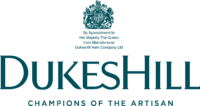January 31, 2024
5 Tips On Financial Recovery with Bad Credit
Bad credit can cast a long shadow over your finances. It can limit your financial opportunities and create obstacles in various aspects of life. Specifically, it makes securing loans, credit cards, rental agreements, and even employment opportunities harder.
Fortunately, with a strategic approach, it’s possible to rebuild your credit and work toward a brighter financial future. If you’re wondering where to start with your financial recovery, we’ve got you covered.
Here are five actionable steps to take to recover from poor credit standing.
Know Your Credit Score
Knowing your credit score helps you set realistic goals for improvement. Whether you’re aiming to qualify for a specific loan or secure a credit card, understanding where you currently stand allows you to create achievable milestones.
To determine your credit score, obtain a “free” credit report from AnnualCreditReport.com, the only website authorized by the federal government to offer such a service. Under federal law, you can get three free copies, one from each of three major credit agencies, namely Equifax, Experian, and TransUnion.
Review your credit report for any errors. If you find any discrepancies, follow the credit bureau’s dispute process to correct them immediately. These mistakes can potentially lower your credit score, so dealing with them as soon as possible is recommended.
Prioritize Debt Repayment
Prioritizing debt repayment is especially recommended if you have multiple debts. Doing so not only reduces the amount of money you owe faster but also demonstrates to creditors your commitment to fulfilling your financial obligations and improving your credit.
There are two recommended methods to pay debt off fast:
1. Snowball Method – Pay off the smallest debts first. It offers a psychological win early on, which can be motivating as you see balances disappear.
2. Avalanche Method: Focus on paying off the debts with the highest interest rates first. While this method may be financially challenging and take longer to see tangible results, it can potentially save you more money on interest payments in the long run.
Consolidate Loans
In addition to debt repayment methods, another way is through debt consolidation. Debt consolidation involves lumping together multiple debts into a single loan with a lower interest rate, thereby simplifying your payment schedule and making it easier to manage your financial obligations.
Here are other ways debt consolidation benefits you:
1. Lower Interest Rates – A consolidated loan will have a lower interest rate than the average of your previous debts. This not only reduces the total amount you’ll repay over time, but it also means you can pay off your debt faster since more of your payment goes towards the principal rather than interest.
2. Improved Credit Utilization – Your credit utilization ratio (the amount of credit you’ve used compared to your total available credit) makes up a significant portion of your credit score. By consolidating your debt, you may be able to lower this ratio, which can help improve your credit score.
However, some debt consolidation lenders perform a hard inquiry into your credit history to evaluate your creditworthiness and determine the loan terms. This hard inquiry can cause a small, temporary drop in your credit score.
If this hard credit check concerns you, consider opting for alternative financing options that don’t require one. Examples of these are CreditNinja no credit check loans and credit union loans. Then, consolidate your loans independently. Note that this approach is preferable for individuals who are comfortable with managing their finances.
Create a Realistic Budget
One of the time-tested tools that can help you stabilize your finances is budgeting. Tracking your cash flow and adjusting it per your financial capabilities and goals is a foolproof way to recover from any financial setbacks.
Start by identifying your short-term and long-term financial goals. Whether it’s paying off debt, building an emergency fund, or saving for a major purchase, having clear goals will guide your budgeting decisions.
For example, if your goal is to pay debt fast, consider using the “avalanche method.” As mentioned, it focuses on paying off high-interest debt first because it accrues more interest, costing you more in the long run. In this case, you set aside a big part of your income for debt payment in your budget.
Moreover, be sure to develop a comprehensive budget that details your income and all your expenses. Be also realistic about your spending habits and allocate funds to essential needs first. Lastly, consistency is key to budgeting success. Stick to your budget, resist unnecessary impulse purchases, and stay disciplined in your financial decisions.
Seek Professional Help
Financial situations can be more complex than what a DIY approach can remedy. In such cases, don’t hesitate to seek out professional help. Credit counselling agencies can offer valuable advice on managing debt, creating a budget, and improving your credit score.
Professionals can also provide a broader perspective on your financial health and offer tailored strategies to address your credit issues. They may even be able to help negotiate with your creditors to lower interest rates or set up more manageable payment plans.
Final Thoughts
Recovering from bad credit requires patience, discipline, and a proactive approach to managing your finances. Remember, the journey may be challenging, but every small step forward brings you closer to financial stability.






